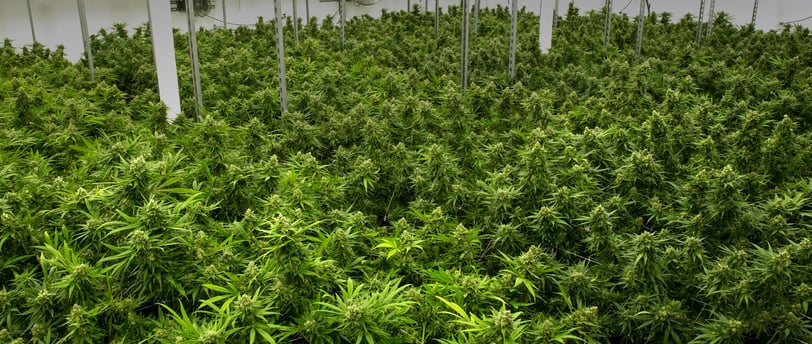The Growing Potential of Thailand's Cannabis Market Sparks Economic Opportunities
6/22/20232 min read


Introduction:
Thailand's cannabis market is poised for significant growth, with a latest study by the University of the Thai Chamber of Commerce (UTCC) projecting an annual expansion of approximately 15% between 2023 and 2025. The study indicates that by 2025, the market value could soar to 43 billion baht, positioning cannabis as a potential key economic crop for the nation. This growth presents promising income prospects for growers and small enterprises, while also opening up broader economic opportunities for Thailand.
Expanding Market and Revenue Projections:
The UTCC's president, Thanavath Phonvichai, believes that following the partial decriminalization of cannabis on June 9, its potential as a thriving economic crop in Thailand cannot be overlooked. As of April 2022, cannabis plantations spanned an estimated 7,500 rai (roughly 1,200 hectares). The UTCC's study forecasts Thailand's cannabis market to generate around 28.1 billion baht in revenue this year. The revenue breakdown includes 9.61 billion baht from upstream products (such as dried flowers, leaves, seeds, and other parts), 14.7 billion baht from midstream products (including extracts, oils, and fabric), and 3.75 billion baht from downstream products (including medicines, supplementary foods, beverages, apparel, and personal care items). The study further predicts market growth to reach 31.8 billion baht in 2023, 36.5 billion baht in 2024, and eventually 43 billion baht in 2025.
Income Potential for Farmers:
Mr. Thanavath highlights the substantial income potential for farmers engaged in cannabis cultivation. According to his projections, cannabis has the capacity to generate annual revenues ranging from 800,000 to 1.2 million baht per rai. This stands in stark contrast to traditional crops like rice, which yield significantly lower incomes of only 10,000 to 15,000 baht per rai annually. The increased financial rewards associated with cannabis cultivation present a lucrative opportunity for farmers and could
contribute to the overall development of the agricultural sector.
Public Sentiment and Concerns:
The UTCC's survey, which collected responses from 1,215 individuals across the nation between July 5 and 15, reveals a divided public sentiment regarding cannabis liberalization. The majority of respondents expressed concerns about potential marijuana misuse among children and young people, as well as potential health issues associated with its consumption. Approximately 75% of respondents stated that they would refrain from purchasing or consuming cannabis products due to worries about side effects, production standards, and the fear of overdosing.
Supervised Usage and Clear Regulations:
Mr. Thanavath emphasizes that while many individuals are open to the medical and recreational benefits of cannabis, they also desire expert supervision and clear regulations regarding its usage. He suggests imposing severe penalties for individuals who violate marijuana usage rules and defining the scope of liberalization more precisely. Mr. Thanavath also underscores the need for increased awareness and knowledge about marijuana and hemp among the general population, along with concerted efforts by the government to address concerns. He calls for close collaboration between the Public Health Ministry, Agriculture and Cooperatives Ministry, and Commerce Ministry to conduct comprehensive research, gather patient data, and develop suitable plans for cultivation and marketing.
Conclusion:
Thailand's cannabis market shows promising growth potential, with forecasts indicating a market value of 43 billion baht by 2025. The partial decriminalization of cannabis has paved the way for its emergence as a key economic crop, offering significant income prospects for growers and small enterprises. However, public sentiment remains divided due to concerns about misuse and potential health effects. By implementing supervised usage, clear regulations, and conducting further research, Thailand can address these concerns and unlock the full economic potential of its cannabis industry.
Address
FourFortyFour Co.,Ltd
97 Thetsaban Sai 2 Road,
Wat Kanalaya,
Thonburi, Bangkok
10600
